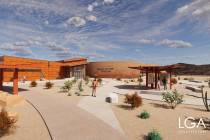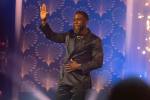Can digital readers and books coexist?
Pamela Mains has a literary secret.
Mains -- avid reader, book lover and owner of the late, lamented Cheesecake and Crime bookstore -- owns a Sony Reader, a handheld electronic device that lets her read a book without having to deal with an actual paper-and-print book-book.
"My husband got it for my birthday about a year-and-a-half ago," confesses Mains.
However, she adds, "I still haven't been able to get myself to open it."
Mains appreciates the theoretical virtues of her e-book reader, which like Amazon's Kindle, Barnes & Noble's Nook and other similar devices, enables bookworms to carry around hundreds of digitized books in a gizmo the size of a trade paperback and the width of a novella.
But, she says, "I love books. I love the feel of the paper. And I do believe that's on the way out, unfortunately."
And that's why Mains' brand new e-book reader remains boxed, unopened and unused.
"I think the reason I haven't opened it yet is because, once I do, that will be the shift for me," she says. "I will go to an e-reader at that point."
Mains isn't alone in her ambivalence. Even as Kindles, Nooks and other e-book readers -- not to mention iPads, laptops and smart phones equipped with e-reader apps -- take their place as this Christmas season's hottest gift, book lovers are apt to experience nostalgia for, and a bit of concern about, the literary medium they're leaving behind.
And with good reason. Amazon.com announced last summer that, for the first time, sales of books for its Kindle outnumbered sales of hardcover books. For a three-month period last spring, Amazon said it sold 143 Kindle books for every 100 hardcover books (although paperback sales still outnumbered e-book sales).
Carol Harter, executive director of the Black Mountain Institute, an international literary center at the University of Nevada, Las Vegas, doesn't have an e-book reader and doesn't particularly covet one.
"I don't think (they're) evil," Harter says. "In fact, I could very well get one. Somebody in my family is likely to get me one, and if I get it, I'll both use it and still read books."
But Harter's husband has a Kindle. She gave it to him.
"He, too, is a voracious reader," Harter says, "and as we sit next to each other -- he with his nice, lightweight Kindle, especially when we're traveling, and me with my 17 books that weigh more than my suitcase -- he reminds me how sensible it is to do what he's done."
But Harter hasn't succumbed to the siren song of e-books just yet.
"I like the feel, the smell, the touch of books," she says. "Really, I'm not anti-technology at all, but I am perfectly happy to continue to take up all this space and this weight with real books."
Debbie Millett, communications manager for UNLV Libraries, doesn't have a Kindle, but hasn't felt the need to go digital yet, either.
"I'm happy with books, so I'm OK," she says. "I don't have a reason yet to get an electronic device."
Millett isn't anti-technology -- she listens to books on tape -- but, she says, "if I pick up an old book, I get that feeling, that smell. It's special."
Jeanne Goodrich, executive director of the Las Vegas-Clark County Library District, bought an iPad and downloaded a few books onto it, just "to try it out."
"I like the idea of being able to get on a plane with a very slim little device that does all kinds of things," she says. "If I get tired of reading, I can play poker. What's not to like about that?"
For Goodrich, an e-book is "just like the other media we have. We have books in the library in hardback form and in paperback form. We can have a movie version. We have books on tape or CD. We might have a large-type version."
And, e-books offer virtues even the most aesthetically pleasing paper-and-print volumes can't. For example, Goodrich has found e-readers' search feature useful when perusing e-book versions of how-to guides.
Yet, Goodrich concedes that, personally, when "sitting at home, reading in a comfortable chair," it'll probably be a book-book that she's holding.
Kim Idol, a second-year doctoral candidate in English at UNLV, has found the Kindle she purchased this past semester academically handy.
As a Ph.D. student, "you read just hundreds of books, and I don't have space in my house for all of those books," she says.
But, in addition to reducing household literary clutter, Idol has downloaded required texts to her Kindle at a fraction of the cost of real books.
"It's much cheaper to download," she says. "This semester, I had to buy six novels at 13 bucks apiece, and on Kindle, because they're classics, they're all 99 cents apiece."
In fact, e-books do tend to be a few bucks cheaper than their print-and-paper counterparts, even if e-book readers are pricey enough -- the cheapest Kindle costs $139, and just about every other one runs close to three figures -- that losing one will prove stressful in a way losing a paperback won't.
"If I lose my hardcover of the latest Sue Grafton (novel), it's not as much as if I leave my Kindle on the beach somewhere," Millett says.
Besides, Millett says, "I tend to get my books from the library, whether it's here at UNLV or the Clark County library. Then I don't pay anything."
Another downside to e-books: Not everything is available in e-book form. Harter notes that, because of her position at the institute, "I read some fairly esoteric stuff and newly published stuff by young writers. You can't get that stuff on Kindle."
For that reason, most book lovers who do opt to go electronic probably end up using their e-book readers to augment, rather than replace, their print libraries.
Myrna Donato, co-owner of Amber Unicorn Books -- doesn't have an e-book reader, doesn't want one -- says most of the customers at her used-book store say they "wouldn't own one because they want to touch and feel and smell the books.
"The ones that do have them got them primarily because they travel a lot and it's easier. And I have to agree: It would be easier to carry a Kindle than it would be to carry five or six or seven books, especially with the airline restrictions they have now."
However, Donato adds that some customers "have them and they use them, but they're not really happy with them. It isn't the same as going to bed with a Kindle as it is with a book."
Felicia Campbell, a writer, reader, book reviewer and English professor at UNLV, says she likes the convenience the Kindle offers, but doesn't find reading it as satisfying as a traditional book. One frustration she has with her Kindle is that she can't share books.
"I would give up the Kindle before I gave up real books," she says. "But, as I say, it's a nice little gadget."
Many book lovers argue that no e-book reader can reproduce the tactile, emotional, sensual experience of reading a book.
"I would hate to see books disappear," Harter says. "I'm looking at four shelves eight feet high in my office, and I think there's something aesthetically and intellectually pleasing about seeing so much knowledge and beauty and imagination in front of me.
"I don't want that to disappear out of my life. I'm pretty fatalistic, though, about how technology will continue to radically change our culture and (how) maybe in 50 years, the book is a total antique."
Donato doesn't think it will be. The growth of e-book readers "hasn't affected us," she says, mostly because many older books aren't available in e-book form.
Even younger readers 12, 13 or 14 years old who might be expected to be among the first to embrace e-books and new technologies come into the used-book store.
"We have a large group of younger (buyers) now," Donato says. "They have Kindles, and they still come in and look for older books and buy older books."
For author and soon-to-be Nook owner Alissa Nutting, e-books and e-book readers, for all the convenience they offer, never can replace the experience of reading a real book.
"As a reader, I'm a bit old-school," she says. "I love the tangible book in my hand, but this is largely nostalgia because, when I was growing up, books were such a comfort.
"It was just a very visceral comfort to me, almost a security blanket. Literally, you could take a book and open it and hide behind it and have it between you and the world. That, about books, I don't think will ever change."
Contact reporter John Przybys at jprzybys@ reviewjournal.com or 702-383-0280.
WHAT THE FUSS IS ALL ABOUT
E-book readers, also referred to as e-readers, are electronic devices on which digital books, magazines and newspapers can be read.
In the broadest sense, they can include laptop and desktop computers, iPads and smart phones equipped with e-reader apps. But they most commonly refer to such dedicated handheld devices as Amazon's Kindle, Sony's Reader and Barnes & Noble's Nook.
E-readers range in price from about $100 to nearly $400. Depending on the device, readers can buy e-books online and have them downloaded directly into their e-reader or onto their computer and then transfer them into the e-reader.
Last week, in the latest salvo in the e-book wars, Google launched its own e-bookstore with a reported 3 million titles. Books purchased through the Google store can be read via e-reader apps that can be downloaded to a variety of devices.
But not all e-books can be read on every device. Amazon's Kindle, for instance, can be used only for books purchased through Amazon.com. Similarly, library e-books may not work on every device.
LAS VEGAS REVIEW-JOURNAL























